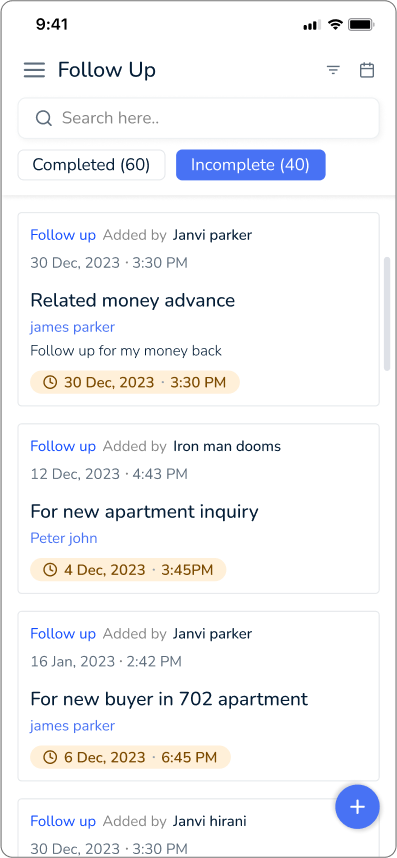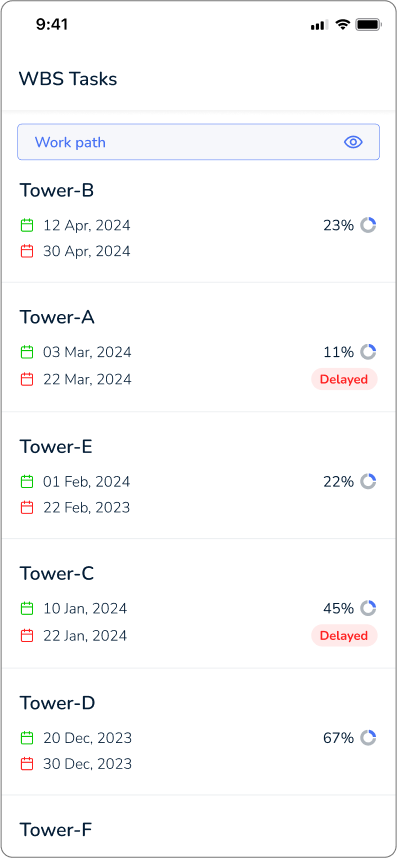
Being a successful real estate agent requires a combination of skills, knowledge, and effective strategies. In the competitive real estate industry, it is essential for agents to establish a strong local reputation, create an online presence, and build meaningful connections with potential clients. In this article, we will explore the top best practices that can help real estate professionals excel in their careers and achieve long-term success.
How to become a real estate agent?
If you are interested in a career as a real estate agent, there are several steps you can take to become one. Generally, becoming a real estate agent involves completing licensing process and finding a real estate agency to work with. These agencies have experienced professionals who oversee and guide the activities of real estate agents
To operate as a property dealer in India, obtaining RERA (Real Estate Regulatory Authority) registration is crucial under the Real Estate (Regulation and Development) Act 2016. This act aims to streamline real estate activities, benefiting both buyers and agents. Additionally, property agents should secure Professional Tax Registration (PTR) which varies by state and requires annual renewal. This process ensures compliance with state tax regulations for providing professional services in the region.
Agents and brokers must also possess certain qualities to succeed in the real estate business, such as strong negotiation and communication skills, motivation, and deep knowledge of the local market. Building relationships and networking are also essential in this field. Once you have obtained your real estate license and found a broker, you can start working with clients to buy, sell, or rent properties. With hard work and dedication, a career as a real estate agent can be lucrative and fulfilling.
7 Best Practices for Real Estate Agents
Here are a few tips to help you make a successful career in real estate and sell properties faster :
Create Local Networks
Establishing a strong local reputation is crucial for realtors as it helps win clients’ trust. Here are some strategies to create a positive local reputation:
Utilize Local Networking Events: Attending local networking events allows real estate agents to meet new people, expand their professional network, and gain exposure within the community. It provides an opportunity to connect with potential clients, industry professionals, and local businesses.
Create High-Quality Content: Creating high-quality content about the local market positions real estate agents as knowledgeable experts in their area. This content can include market reports, neighborhood guides, and tips for buyers and sellers. Sharing valuable information demonstrates expertise and attracts potential clients.
Collaborate with Local Businesses or Influencers: Partnering with local businesses or influencers can help real estate agents broaden their reach and gain exposure. By collaborating on joint marketing efforts or hosting events together, agents can tap into the audience of their partners and enhance their reputation within the local community.
Create Your Website
In today’s digital age, having a website is essential for real estate agents to establish an online presence and effectively showcase their listings and services. Here’s why:
Showcase Your Listings and Services: A website provides a platform for real estate agents to showcase their listings and services in a visually appealing manner. It allows potential buyers and sellers to view properties, gather information, and conveniently contact the agent for further inquiries.
Provide Valuable Resources: Real estate agents can use their websites to provide valuable resources for buyers and sellers. This can include guides for first-time homebuyers, tips for staging a home, and information on the local real estate market. By offering these resources, agents establish themselves as trusted advisors and attract potential clients.
Optimize Your Website: Optimizing a real estate agent’s website for search engines is essential for increasing online visibility and driving organic traffic. By incorporating relevant keywords, optimizing page titles and meta descriptions, and building high-quality backlinks, agents can improve their website’s ranking on search engine results pages.
Self-Branding
Branding plays a crucial role in differentiating real estate agents from their competitors and creating a recognizable identity in the market. Here are some tips for branding yourself as a real estate agent:
Define Your USPs:?Identify your unique selling proposition (USP) – the qualities that set you apart from other agents in the industry. It could be your expertise in a specific niche, exceptional customer service, or innovative marketing strategies. Highlighting your USP helps?clients understand how you can meet their specific needs.
Create a Professional Branding Identity: Developing a consistent branding identity across all marketing channels is essential for building brand recognition. Use a professional logo, consistent color scheme, and cohesive visual elements in your marketing materials, website, social media profiles, and email signatures. A strong branding identity helps create a memorable impression on property buyers.
Utilize Personalized Marketing Materials: Personalized marketing materials, such as business cards, brochures, and flyers, can leave a lasting impression on new clients. Use these materials to highlight your achievements, showcase your listings, and communicate your unique value proposition. Customizing these materials with your branding elements adds a professional touch.
Connect with Groups and Messengers
Beyond traditional networking, real estate agents can leverage various groups and messengers to expand their reach and connect with new clients. Here’s how:
Join Local Real Estate Groups or Associations: Joining local real estate groups or associations allows agents to network with other industry professionals, stay updated on market trends, and gain valuable insights. It provides opportunities for collaboration, referrals, and mutually beneficial relationships within the real estate community.
Engage with Online Communities and Forums: Participating in online communities and forums related to real estate enables agents to engage with a wider audience and establish themselves as helpful experts. Answering questions, providing insights, and sharing valuable information positions agents as knowledgeable professionals and helps attract new clients
Utilize Messaging Apps: Messaging apps provide a convenient and personal way to connect with potential clients and foster relationships. Whether it’s through one-on-one messaging or joining relevant groups, agents can use these apps to stay in touch, provide assistance, and nurture leads.?
Maintain social media presence:? Use social media for marketing and advertising. Attract new customers using quality photos of properties on social media platforms.?
Leverage Real Estate CRM Software
Managing client information, automating follow-ups, and Lead management & Lead Generation are essential tasks for real estate agents. CRM (Customer Relationship Management) software simplifies these processes and offers several benefits:
Manage Client Information Effectively: Real Estate CRM software allows real estate agents to organize and manage client information efficiently. It provides a centralized database where agents can store contact details, property preferences, communication history, and other essential information. Streamlining this data improves client management and enhances customer service.
Automate Follow-ups:?Real Estate CRM software?enables real estate agents to automate follow-up communications, ensuring timely and consistent interactions with clients. Agents can set reminders for important dates, send personalized emails or text messages, and track client responses. Automated follow-ups help agents stay on top of their minds and nurture leads throughout the real estate transaction?process.
Track Lead Generation and Conversion: CRM software provides valuable insights into lead generation and conversion. Agents can track the source of leads, monitor their conversion rates, and analyze the effectiveness of various?marketing strategies. This data allows agents to make data-driven decisions, refine their marketing efforts, and focus on activities that yield the best results.
If you are looking for easy-to-use and cost-effective CRM software, Build Formula is the best CRM for real estate in India which you can access from anywhere using your smartphone.
Timely Follow-up of Leads
Following up with leads is crucial for real estate agents to maximize conversion rates and close deals. Here are some tips for effective lead follow-up:
Create a Structured Follow-up System: Developing a structured follow-up system ensures that no leads slip through the cracks. Define a timeline for follow-up actions after initial contact, property?showings, or inquiries. Utilize tools like reminders or task management software to stay organized and consistently engage with buyers
Personalize Follow-up Communications: Personalization is key in follow-up communications. Address clients by their names, reference their specific needs or preferences, and tailor the content to their interests. Personalized follow-ups demonstrate attentiveness, build trust, and increase the chances of conversion.
Provide Constant Value:?Continuously provide value to leads by offering useful information, market updates, or relevant resources. Stay persistent in your follow-ups without being overbearing. Show?clients that you are committed to helping them achieve their real estate goals and build a strong foundation of trust and credibility.







